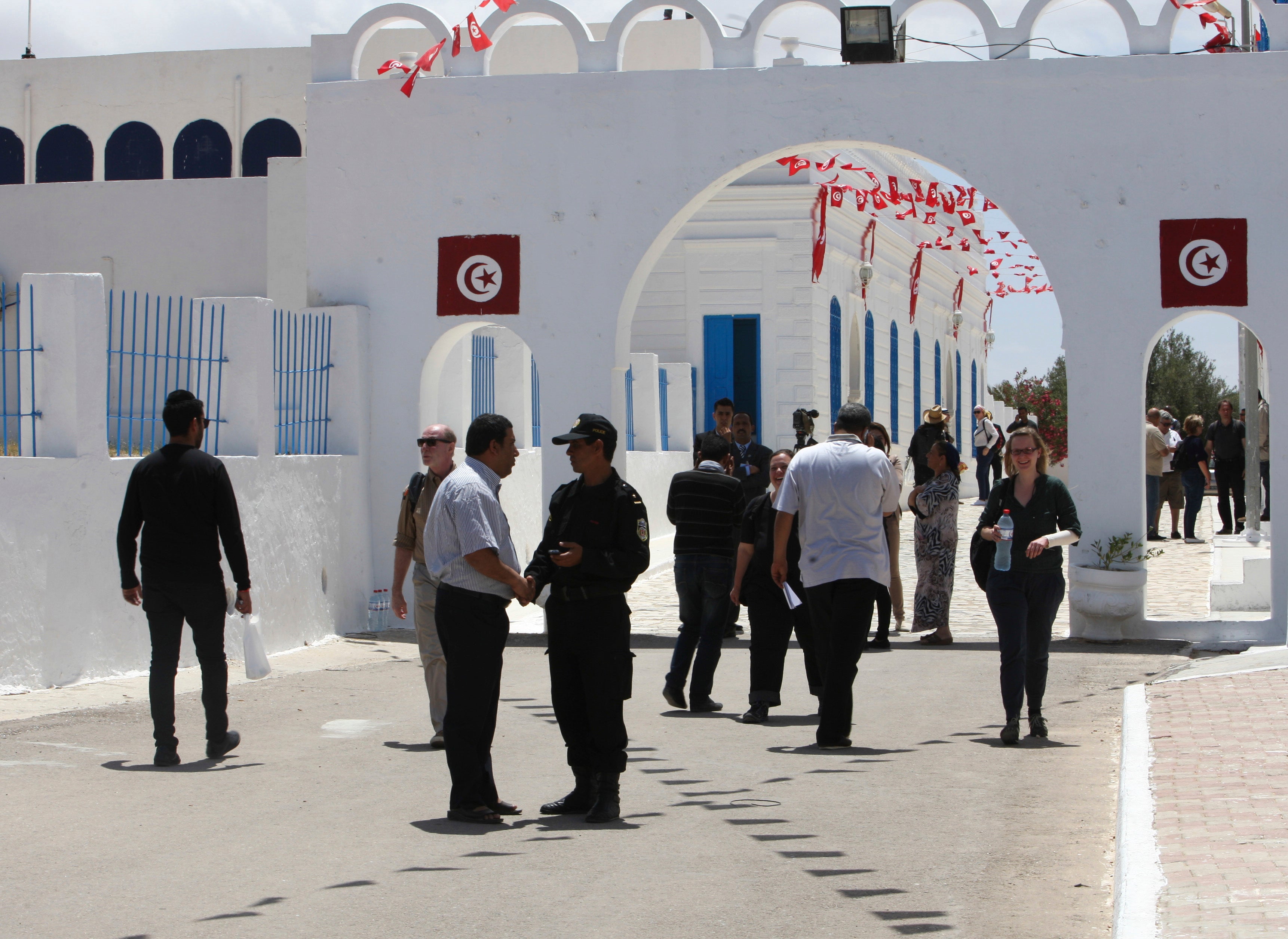Tunisian Jews scale back annual pilgrimage to ancient synagogue because of security concerns
Jewish Tunisians who organize an annual pilgrimage to one of the world’s oldest synagogues are planning a scaled-down event next month

Jewish Tunisians who organize an annual pilgrimage to one of the world’s oldest synagogues are planning a scaled-down event next month, citing concerns about security less than a year after a deadly shooting there shook their community.
Thousands regularly make the journey to Djerba — the North African island where many of Tunisia’s remaining 1,500 Jews reside — to celebrate the Jewish holiday Lag B’Omer. But this year, the community has decided to limit them to the 26-century-old El-Ghriba synagogue instead of the island-wide events traditionally held.
“Those who come to visit are welcome and they can hold religious rituals, light a candle, inside the synagogue,” Perez Trabelsi, the head of the island’s Jewish community, told The Associated Press.
The decision comes more than six months into the Israel-Hamas war, which has reverberated throughout the Middle East and North Africa, inciting mass street protests from Morocco to Iraq. In Tunisia, most of the protests have been peaceful but in October, demonstrators desecrated a synagogue in Al-Hammah on the mainland.
The limits to the Lag B’Omer pilgrimage are a blow to Djerba’s tourism industry after it welcomed more than 7,000 people for the three-day event last year. Days after it concluded, a 30-year-old national guardsman killed five people at the El-Ghriba synagogue, sparking panic among the population and visitors.
The shooting and the Israel-Hamas war are politically charged topics in the North African country. Trabelsi attributed the decision to limit this year's Lag B’Omer festivities to security concerns over the shooting, not the war. He said the community didn't feel threatened, but noted that its leaders felt obliged to protect it.
He praised Tunisian authorities for working to provide security for the event and in a statement on Friday underlined the significance of the pilgrimage: “Tunisia and Djerba will remain lands of tolerance, coexistence and peace."
Similar questions have been raised about annual pilgrimages to Jewish sites in Morocco, historically home to North Africa’s largest Jewish community.
The International Federation of Moroccan Jews has called for canceling collective celebrations of the Mimouna holiday and avoiding festive events in public spaces, according to local media reports.
Bookmark popover
Removed from bookmarks